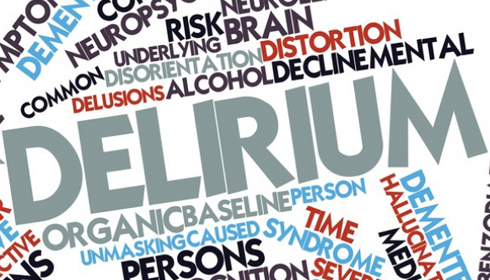
New Study Links Delirium to Dementia
A groundbreaking study has uncovered a potential link between delirium and dementia, shedding light on a critical aspect of elderly healthcare. Researchers from the Australian Institute of Health Innovation (AIHI) at Macquarie University and the University of Queensland (UQ) collaborated on this insightful investigation, delving into anonymized hospital records of over 110,000 individuals aged 65 and above in New South Wales over 11 years.
Published in the latest issue of the British Medical Journal, the study underscores a startling correlation: patients who experienced at least one episode of delirium during their hospital stay were found to develop dementia at a rate three times higher than those who did not encounter delirium.
Delirium, characterised by sudden mental state changes marked by confusion and disorientation, is prevalent among older individuals during hospitalization. Previous studies indicate that it affects over 40 per cent of people aged 80 and older. Analysing vast datasets encompassing both public and private hospital records, the research team meticulously identified patients aged 65 and older who experienced delirium during hospitalisation.
Each patient with delirium was paired with a comparable counterpart—a 'twin' sharing similar age and sex characteristics but devoid of delirium experience. This meticulous matching process enabled researchers to track 55,211 pairs over five years. The findings were striking: individuals in the delirium cohort were diagnosed with dementia at a rate three times higher than those in the non-delirium cohort. Moreover, each additional episode of delirium was associated with a 20 per cent increase in dementia risk.
Tragically, the delirium cohort also faced a 39 per cent higher likelihood of mortality during the study period, further underscoring the gravity of the findings. The study emerged from a broader investigation into frailty led by the NHMRC Partnership Centre for Health System Sustainability, spearheaded by AIHI Founding Director, Professor Jeffrey Braithwaite.
Contrary to misconceptions, frailty is not an unavoidable consequence of ageing but rather a medical condition linked to diminished physical and cognitive reserves, resulting in a poorer quality of life. The rigorous analysis of the extensive dataset was led by Professor of Medical AI, Shlomo Berkovsky, from Macquarie University, illuminating crucial insights into the intricate relationship between delirium and dementia.
“We requested this information from NSW Health to look at the causes of frailty in elderly people,” Professor Berkovsky says.
“All elderly patients who are admitted to the hospital are assessed for frailty and receive a frailty score. This indicates whether they can safely undergo treatments such as heart surgery, but it doesn’t specify exactly what aspect of their health is contributing to their poor physical condition.
“As we analysed the data, we could see different clusters appearing, including dementia. The University of Queensland clinician researchers were already looking at potential links between delirium and dementia, and they were able to develop the critical question we needed to direct our analysis.
“These results don’t prove categorically that delirium leads to dementia, but we have found a strong causal relationship between the two, which is a very large smoking gun, you might say.
Dr Emily Gordon, a UQ Centre for Health Systems Research Fellow and the paper’s lead author, says the findings of the study have major implications for clinical practice.
“We know that delirium is common and dangerous,” she says.
"We also know about 40 per cent of delirium cases are preventable, with readily available interventions such as keeping hydrated, well-nourished, and mobile.
"So it follows that delirium prevention and treatment are likely to be unrivalled opportunities to reduce the burden of dementia globally."